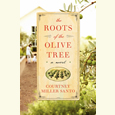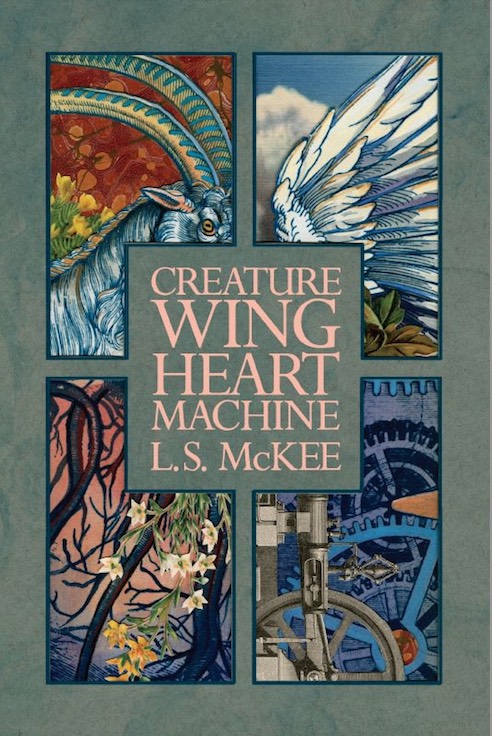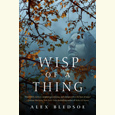A Necessary Political Act
In Opinions, Roxane Gay grapples with the questions of our time
Roxane Gay has a lot of opinions. Fortunately for us, she is not afraid to share them. One of our nation’s most eloquent and daring public intellectuals, a writer, editor, professor, and cultural commentator, she has grappled with the larger issues facing society — racism, the rolling back of civil rights, women’s reproductive freedom — as well as more individual topics like fatness, bisexuality, and Blackness. Many of her most thought-provoking and rigorous essays are collected in the anthology, out in paperback in 2024, titled Opinions: A Decade of Arguments, Criticism, and Minding Other People’s Business.
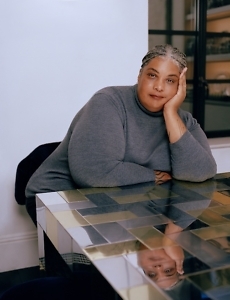
Opinions is a collection of Gay’s best nonfiction pieces from the past 10 years with a new introduction providing the context for her unflinching and insightful commentary. “On the page I get to be the boldest, most audacious version of myself,” she writes. The essays are divided into themed sections with titles such as Civic Responsibilities, For the Culture, and Man Problems. Gay directs her astute critical gaze to issues like race, identity politics, cultural criticism, and gender. These make up the heart of the book, but she also writes relatable and witty pieces about popular culture, TV, and celebrities.
Gay is known for not shying away from expressing unpopular opinions, and she conveys them in accessible but ruthless prose. In the essay “Mockingbird Reconsidered,” she argues that Harper Lee’s novel does not deserve its place in the American canon. “As for the story, I can take it or leave it. Perhaps I am ambivalent because I am black. I am not the target audience. I don’t need to read about a young white girl understanding the perniciousness of racism to actually understand the perniciousness of racism. I have ample firsthand experience.”
In the essay “The Legacy of Toni Morrison,” published after the author’s death in 2019, Gay’s admiration for Morrison is unwavering: “Everything I am and ever will be as a black woman who writes begins with the work of Toni Morrison.” Gay’s work contains echoes of Morrison’s, most notably when she writes about hope and humanity. In Morrison she finds a beacon and a reason to speak truth to power. She writes, “Ms. Morrison taught me and an entire generation of black writers to recognize that we are rich places to write from. … She demonstrated that there is no shame in writing that is both work and a necessary political act.”
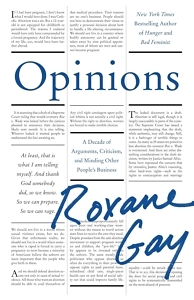 This collection showcases Gay’s ability to parse meaning from a broad array of subjects, a testament to the power of opinion writing and to her well-earned status as a public intellectual. Her work touches on everything from violence against Black bodies to toxic internet culture to the reality show The Bachelor. But her criticism is at its sharpest when writing about sexual violence and its perpetrators. In the essay “Dear Men: It’s You Too,” Gay writes about the harmful aspects of rape culture in the wake of the Harvey Weinstein allegations and the subsequent #MeToo movement: “I confess I am sick of thinking about sexual violence, both personally and publicly. I’ve talked about and written about and responded to tweets about it for years. I am filthy with the subject, and yet I know this work must be done so that someday we can banish the phrase ‘rape culture’ from our vernacular because it will have become an antiquated concept.”
This collection showcases Gay’s ability to parse meaning from a broad array of subjects, a testament to the power of opinion writing and to her well-earned status as a public intellectual. Her work touches on everything from violence against Black bodies to toxic internet culture to the reality show The Bachelor. But her criticism is at its sharpest when writing about sexual violence and its perpetrators. In the essay “Dear Men: It’s You Too,” Gay writes about the harmful aspects of rape culture in the wake of the Harvey Weinstein allegations and the subsequent #MeToo movement: “I confess I am sick of thinking about sexual violence, both personally and publicly. I’ve talked about and written about and responded to tweets about it for years. I am filthy with the subject, and yet I know this work must be done so that someday we can banish the phrase ‘rape culture’ from our vernacular because it will have become an antiquated concept.”
One of the pitfalls of being asked to write about every calamitous event happening in our country is the author’s need to defend herself against others’ expectations. “I am often accused of being angry,” she writes in the introduction to Opinions. “Sometimes I try to defend myself, because anger is not the primary engine of my work. And other times I get angry, because anger is an entirely appropriate response to bigotry, systemic bias, and injustice.”
Gay is the author of the bestselling memoir Hunger and a groundbreaking collection of essays, Bad Feminist. She has also published two works of fiction, several short story collections, and is the first Black woman to write for Marvel comics. An ambitious new anthology, The Portable Feminist Reader, edited by Gay, was published in March. She is a New York Times Opinion section contributor and the publication’s “Work Friend” columnist, where she offers advice on office etiquette, careers, money, and work-life balance. Increasingly, she has become not just a writer but a spokesperson for women and Black and brown people, as well as queer people and those who wish to ally themselves with those groups.
Although the essays in the collection are drawn from the past decade, none of them feel dated. In “Hate That Doesn’t Hide (On Trump’s Presidency),” originally published in 2017, Gay’s words easily apply to today: “We cannot afford to delude ourselves about the state of things.” The essay addresses the rise of white supremacy during the first Trump administration, the violence in Charlottesville, and the removal of Confederate statues. She concludes the essay with a call to action: “Resistance is the responsibility of everyone who believes in equality and demands the eradication of racism, anti-Semitism and the hatred that empowers bigots to show their truest selves in broad daylight. I am reminding myself that I should never allow my fears to quiet me. I have a voice and I am going to use it, as loudly as I can.”

Joy Ramirez is a freelance writer focusing on book reviews and personal essays. In addition to Chapter 16, her work appears in the Nashville Scene, BookPage, Vanderbilt Magazine, and more. She is currently working on a collection of essays.
